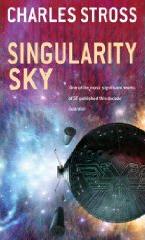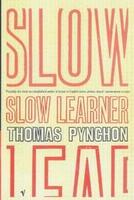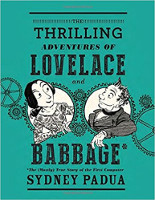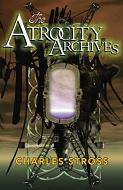 A few words of praise for Charles Stross' first published novel, Singularity Sky, which left me positively surprised – for a first novel this is highly readable and in parts 'undownputable' (urgh, nu-English), despite some confusing time lines and lazy explanations. A Must Read.
A few words of praise for Charles Stross' first published novel, Singularity Sky, which left me positively surprised – for a first novel this is highly readable and in parts 'undownputable' (urgh, nu-English), despite some confusing time lines and lazy explanations. A Must Read.
Some history… in the mid-21st Century, in a post-singularity Earth, with humanity tinkering with FTL and time travel, the Eschaton arrived, and 90% of the population vanished. Just like that. And it left a message, in very clear words:
I am the Eschaton. I am not your god.
I am descended from you, and I exist in your future.
Thou shalt not violate causality within my historic light cone. Or else.
Once the world had recovered from the impact of the cataclysmic event of losing such a ratio its population (to put it mildly), and ventured into space again, they found the other 90% again. As involuntary colonists, thrown across space and time, bunched by a number of criteria, and given terraformed worlds to live on as well as robot factories and Cornucopia machines, nevertheless. And outside the light cone of the actual event…
Eschaton; The last thing. Eschatology, a branch of Theology, is the study of those phenomena associated with the end of the world. The Eschaton is conceived of as a boundaryless and causeless chaotic attractor that is drawing all space and time deeper into states of novel connection and complexity.
One of those colonies is the New Republic, settled by ex-Eastern block techno-refuseniks, lost souls from the singularity; reactionary, luddite, throwbacks into a 'better' past life. The society that developed in the 250 years of its history abandoned the Cornucopia machines, life extension and all the other mod cons, and lived like Europe would have been if Scientific progress would have stopped in 1890. Except for its Space Navy, which is definitely modern, if with the same old-fashioned slant, and thus everything but cutting edge.
Rochard's World, an outpost of the Empire that the New Republic is (governed out of New Prague), is being visited by 'The Festival'. Thoroughly inhuman, traveling in Starwhisps spun from Diamond, it starts to unpack and produce infrastructure, bodies, tools to fulfill its mission of establishing a Galaxy-wide, Quantum-entagled network of immediate communication links. In its manifestation to the worlds it visits it appears as an infovore, who wants to be entertained, and who travels with its own Fringe (very scary…) and Critics (nearly as scary). And make no mistake, the local underground/revolutionaries make the best use of all the resources all of a sudden at their disposal.
Into this world two protagonists are thrown – first up with have Martin Springfield, a Propulsion System specialist from Earth (and something more), who has been hired as a contractor to update the drive system of the Lord Vanek, the flag ship in the New Republic's fleet. Under way he meets Rachel Mansour, UN Diplomatatic Corps, Weapons Inspector, and even more at odds with the society she currently lives in than he is. Both end up on the ship, as it leads the fleet in an attempt to attack the Festival through some clever tricks of time/space travel, causing a local (but not global) violation of causality. An important difference – the Eschaton takes a very dim view of global violation of causality, and reacts rather harshly (Planet busters, Asteroids at 500mps and other similar trivialities). And both of then are more than they seem…
Immanentize the Eschaton: bring on the Final Days, create Heaven On Earth; the End of Everything
Besides the Stross staple of the Singularity (here it means where trading markets and 'old' government schemes were made superfluous by technology) and the rather funky concept of the Eschaton as a god-like-I'm-not-a-god being (what was the quote about sufficiently advanced technology and magic again? Works the same for a deity…) this story plays out in a universe with some standard SF concepts and technologies. Namely, we have FTL and time travel (and Stross neatly ignores the usual paradoxes in favour of the spacelike/timelike bits, and the Light cone/causality rules), it has Quantum Entangled instant communications (which have to be shipped at sub-light speed – so far so scientific), it has life extension treatments which seem to be fairly effective, but don't make people immortal (realistic, if futuristic IMHO), and, as causal factor for the Singularity, it has nanotech and Cornucopia machines, and all that entails.
The book garnered a Hugo Nomination for Charlie (he didn't win, like most things he's been nominated for so far... things will change I'm sure!). I found it to be engaging and absorbing, hard to put down in parts. The worst I can say about it is that the time lines seem a bit confused (or not explained clearly enough for me to grasp), and not just because of the time travel bits; and that some of the explanations seem lazy, ie not that well researched or defined.
The underlying concepts, on the other hand, appear to be well thought through (light cones, causality, the time-like and space-like paths etc. The protagonists are engaging and, within the usual SF limits, believable; Rachel maybe a bit more than Martin. I also find it very realistic that most of the 'baddies' come in shades of grey, with the odd surprise thrown it, too.
The book has a sequel (Iron Sunrise, waiting on my pile), and both are available as an Omnibus edition (Timelike Diplomacy), too. This is/was Charlie's first published Novel. I think. It's hard to tell, given his rather chaotic publication schedules across publishers, on both sides of the pond. Although all of this should be in the past soon, he promises.
Recommendation? What are you still doing reading this? Go get the book!
Title: Singularity Sky
Series: Singularity Sky
Series Number: 1
Author: Charles Stross
Reviewer: Markus
Reviewer URL: http://skating.thierstein.net
Publisher: Orbit
Publisher URL: http://www.orbitbooks.co.uk
Publication Date: 2004
Review Date: 080111
ISBN: 9781841493343
Price: UKP 6.99 RRP
Pages: 389
Format: Paperback
Topic: SF
Topic: Space Opera














